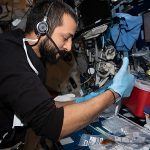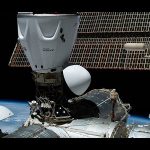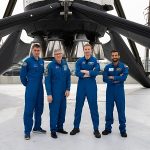Nasa has set a new launch date for the SpaceX rocket carrying Emirati astronaut Sultan Al Neyadi after the blast-off was postponed on February 27.

The Mohammed Bin Rashid Space Centre, in collaboration with international partners, is looking at a new launch date for UAE Mission 2.
The next available launch attempt is on Thursday, March 2, at 09:34 a.m. UAE time, pending the resolution of the technical issue that prevented todays launch.
UAE astronaut Sultan Al Neyadi is the prime astronaut of the mission while Hazzaa AlMansoori is a backup crew.
The Crew-6 mission from Cape Canaveral to the International Space Station is provisionally scheduled for 9.34 am UAE time on Thursday.
The mission on Monday was called off at 10.42 am UAE time two and a half minutes before the Falcon 9 rocket’s engines were due to ignite.
The crew of four Russia’s Andrey Fedyaev, Nasa’s Warren Hoburg and Stephen Bowen, and Dr Al Neyadi remained on the rocket for about two hours after the launch was called off, or scrubbed in Nasa terms, while fuel was pumped out.
Due to a ground systems issue, respective mission teams unanimously agreed to investigate the issue that prevented data from confirming a full load of the ignition source for the Falcon 9 rocket.
The mission will make the UAE the 11th country to send astronauts on a long-duration mission to the ISS as well as train and prepare them for spacewalks.
A media teleconference prior to the next launch attempt will be arranged and more details will be provided as available.
Dubbed as Crew-6, the mission will launch aboard the SpaceX Crew Dragon spacecraft from Launch Complex 39A at NASAs Kennedy Space Center in Florida, with Emirati astronaut Sultan AlNeyadi being designated as the Mission Specialist of the Prime Crew along with NASA astronauts Stephen Bowen (Spacecraft Commander) and Warren Hoburg (Pilot) and Roscosmos cosmonaut Andrey Fedyaev (Mission Specialist).
Crew-6 is part of Expedition 69, with Roscosmos Cosmonauts Nikolai Chub and Oleg Kononenko, and NASA astronaut Loral OHara joining the team at later dates. Expedition 69 will potentially continue to install the final pieces of iROSA, the roll-out solar arrays on the International Space Station, in addition to conducting scientific experiments and research.















































































